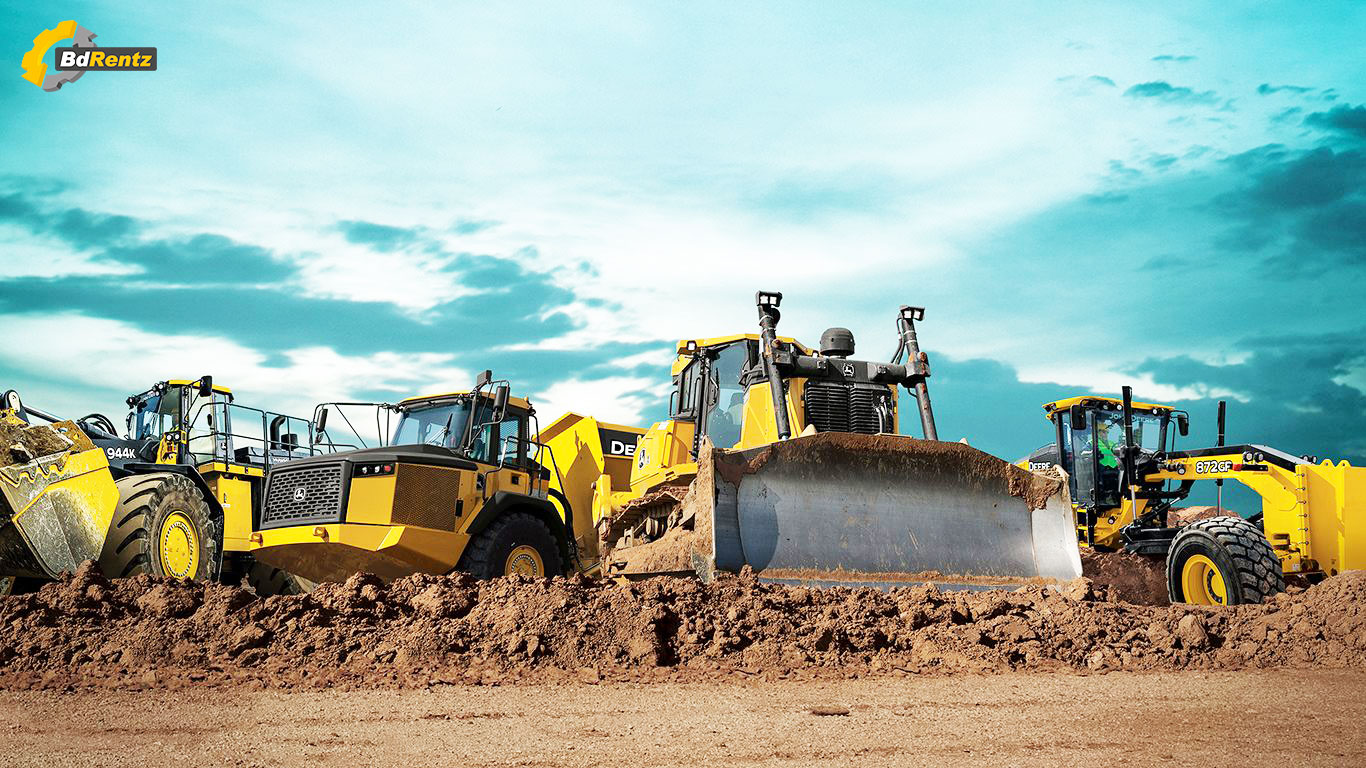Heavy Equipment Rental: Big Machinery for Any Type Of Construction Project
Heavy Equipment Rental: Big Machinery for Any Type Of Construction Project
Blog Article
Optimize Your Budget Plan by Comprehending the Prices Linked With Building And Construction Tools Services
Understanding the complete range of prices associated with building and construction tools services is critical for maximizing your budget. What techniques can be utilized to efficiently manage these expenses and make sure a more reliable rental experience?
Summary of Rental Expenses
When taking into consideration building and construction equipment rentals, comprehending the linked costs is critical for efficient budgeting and project planning. Rental costs can differ significantly based on numerous variables, consisting of devices kind, duration of service, and place. The initial rental cost frequently mirrors the devices's market demand and its associated operational capabilities, influencing the total cost.
Along with the base rental rate, supplementary prices might emerge, such as transportation fees, gas surcharges, and maintenance fees. It is vital to represent these extra expenditures to precisely analyze the complete price of renting out tools. The rental duration can impact rates; longer services may qualify for affordable prices, while temporary rentals might sustain higher daily fees.

Break Down of Rental Rates
An extensive understanding of rental rates is important for service providers and project managers intending to enhance their budgets. Rental prices for building and construction tools generally contain numerous parts, consisting of base rates, time-based fees, and usage fees.
Base prices are the core charges related to the leasing of the equipment, usually determined by the type and size of the machinery. These prices can vary significantly, affected by variables such as equipment need, schedule, and local market patterns. Time-based costs, which might be daily, weekly, or monthly, offer to fit different project timelines and rental periods.
Additionally, rental prices may consist of usage costs, which are applicable when equipment is utilized past a specified limit, making sure that the rental company can represent wear and tear. Seasonal need fluctuations can additionally affect rental prices, with peak construction periods usually regulating higher rates.
Furthermore, recognizing the rental company's plans regarding upkeep and insurance coverage can give additional understanding into the total cost framework. By analyzing these elements, contractors can make enlightened decisions, ensuring the option of rental equipment straightens with both task needs and spending plan restraints.
Additional Fees to Think About
Comprehending the details of added costs is crucial for professionals to manage their overall rental expenses efficiently. Beyond the conventional rental rates, various supplemental fees can substantially affect the total cost of equipment service. These costs often consist of distribution and pickup charges, which can differ based upon range and logistics entailed in transporting the equipment to and from the work website.
In addition, some rental firms might enforce gas additional charges if the devices is returned with much less gas than when rented out. It is additionally important to recognize possible cleansing costs, particularly for specialized equipment that requires thorough upkeep after usage.

Thoroughly assessing the rental contract and clarifying these extra fees ahead of time can assist contractors stay clear of unforeseen expenses and make certain that spending plans remain intact throughout the task lifecycle.
Repair And Maintenance Expenses
Routine repair and maintenance expenditures are usually ignored factors that can substantially affect the general price of construction tools rentals. When leasing tools, it is essential to take into consideration not only the rental charges however additionally the potential expenses linked with keeping the equipment in optimal operating condition.
Lots of rental firms include fundamental upkeep as part of the rental contract; nevertheless, more unanticipated break downs or considerable repair services can bring about added expenditures. It's important to examine the rental agreement meticulously to understand what maintenance services are covered and what responsibilities fall on the tenant.
In addition, tools that is not well-kept can bring about inefficiencies at work site, possibly triggering Look At This delays and increasing project costs. To mitigate these dangers, it is recommended to conduct routine evaluations and preserve open communication with the rental supplier relating to any type of problems that emerge throughout use.
Insurance Coverage and Obligation Expenses
Insurance and liability expenses are vital elements that can dramatically influence the total expense of building tools services (forklift rental). These prices make certain that both the rental firm and the customer are safeguarded from prospective economic losses emerging from accidents, damage, or theft throughout the rental period

Additionally, customers must be conscious of any type of deductibles or exclusions in the insurance coverage, as these can affect prospective out-of-pocket costs. Understanding the terms and conditions of any type of insurance policy coverage is crucial to stay clear of unexpected expenses. Inevitably, budgeting for insurance and responsibility expenditures can help guarantee a smoother rental experience and safeguard versus economic risks connected with building and construction projects.
Final Thought
In conclusion, an extensive understanding of the costs associated with construction tools leasings is crucial for reliable budget plan management. Ultimately, educated decision-making relating to equipment services adds to the overall success of construction undertakings.
Rental expenses can vary significantly based on numerous aspects, including tools type, duration of service, and place (mini excavator rental). The rental period internet can impact prices; longer rentals might qualify for discounted rates, while short-term rentals could incur higher everyday costs
By carrying out complete study and involving with reliable rental companies, service providers can properly browse the complexities of rental pricing, ultimately maximizing their economic resources.
Past the conventional rental prices, different auxiliary fees can dramatically affect the complete cost of tools rental. Rental business frequently give obligation insurance that covers injuries to 3rd parties or damage to home, while click for info equipment damage insurance policy can cover the expense of repairs or replacement if the rented out tools is harmed.
Report this page